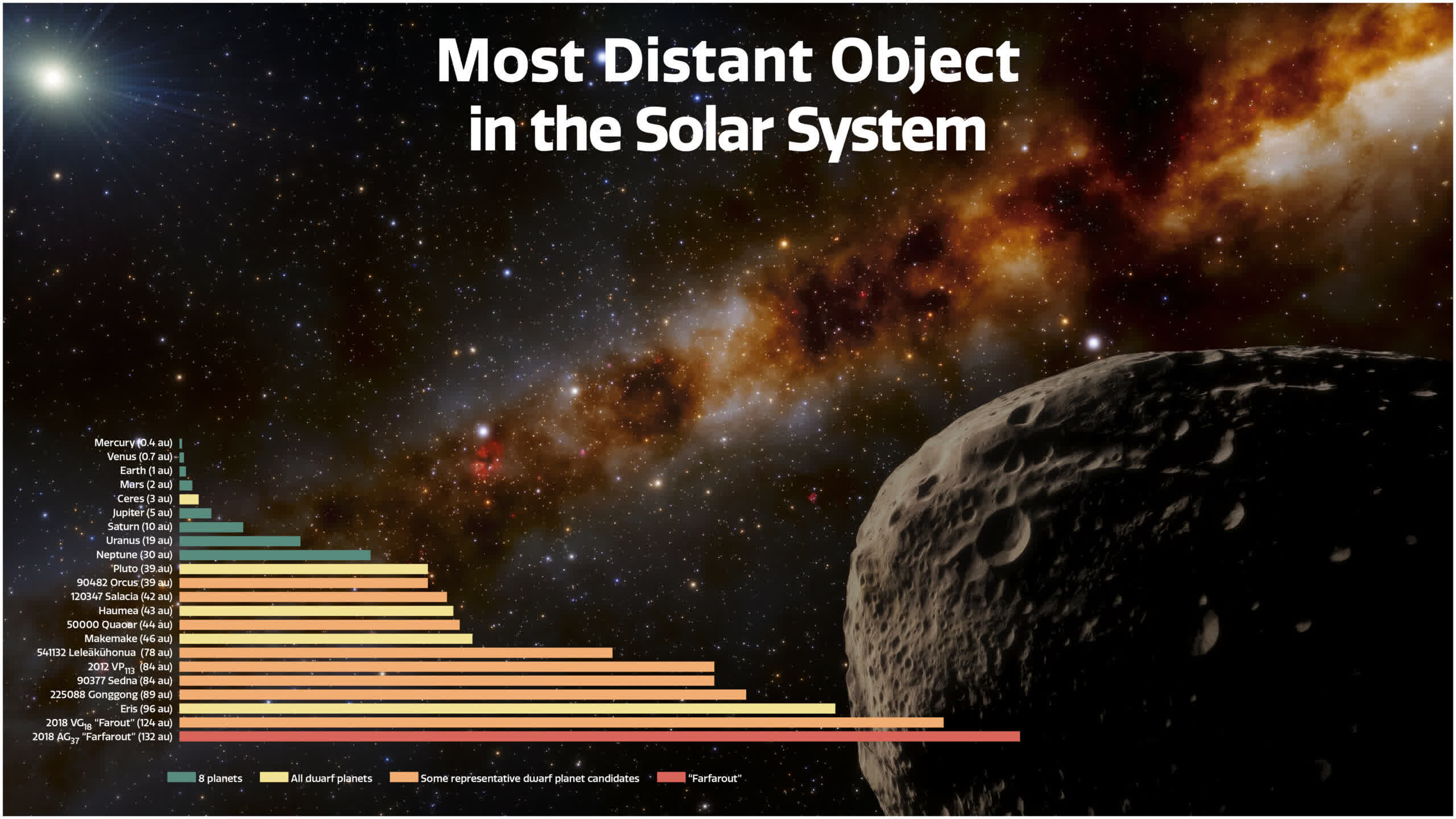The big picture: Farfarout was first discovered in January 2018 using the Subaru Telescope, an 8-meter scope located on top of a dormant volcano in Hawaii. Over the next few years, co-discoverer Scott Sheppard and colleagues tracked the object using a variety of telescopes around the world to get a read on its orbit. They have since confirmed it is the most distant object yet found in our solar system.
The team has since learned that Farfarout resides 132 astronomical units (AUs) from the Sun. A single AU is defined as the distance from the center of the Earth to the center of the Sun, or about 91.757 million miles. For comparison, dwarf planet Pluto is just 34 AU from the Sun.
Farfarout is not to be confused with Farout, another object discovered by Sheppard and crew that was also found in 2018. It's not as distant as Farfarout, hence the nomenclature.

Farfarout has a long orbital period, moving very slowly across the sky. As such, it takes a full 1,000 years to complete one orbit around the Sun. This is why it took so many years of observations to correctly map its trajectory.
Scientists believe Farfarout may at one point have been much closer to Neptune or perhaps have originated from a more central location within our solar system.
Observations will continue on Farfarout and as scientists gain more knowledge about the object, they'll work to give it a proper name (although personally, I don't see what's wrong with Farfarout).
Masthead credit Aphelleon
